BLACK PANTHER: WAKANDA FOREVER (2022)
The people of Wakanda fight to protect their home from intervening world powers as they mourn the death of King T'Challa.
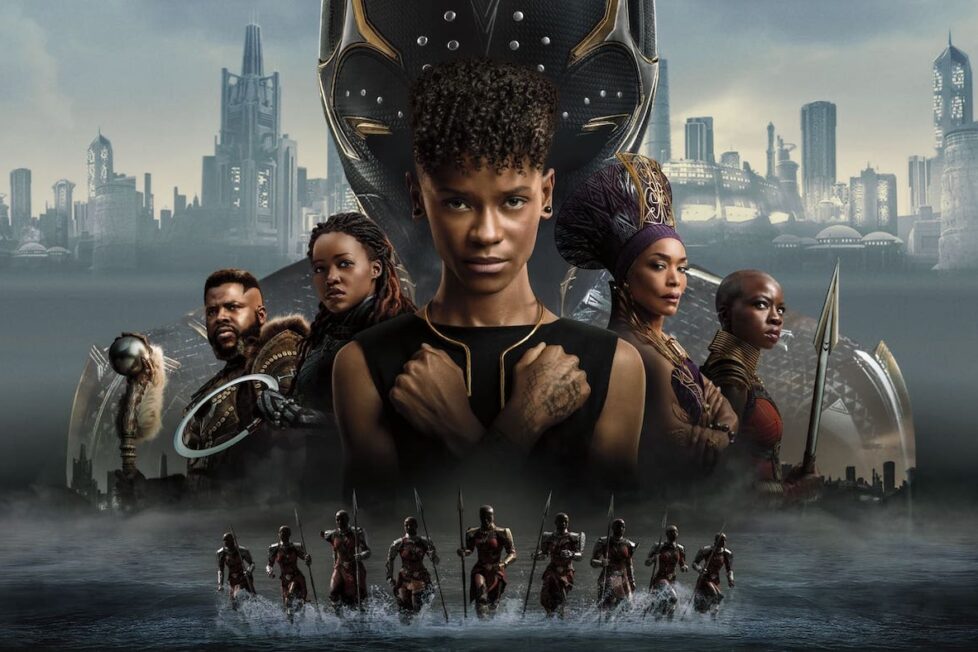
The people of Wakanda fight to protect their home from intervening world powers as they mourn the death of King T'Challa.


Ryan Coogler’s Black Panther (2018) was a critical and commercial smash hit that also became a major cultural event, giving the black community a hero to aspire to and a fictional civilisation to feel proud about seeing on screen. It also made a star of Chadwick Boseman—playing the eponymous superhero with such dignity, poise, and grace—who followed it with awards-worthy performances in other projects. Tragically, Boseman died of colon cancer in 2020 while Black Panther 2 was being developed; something that shocked everyone and threw Coogler’s much-anticipated sequel into doubt. Considering the difficulty in writing around the untimely death of its iconic lead, Black Panther: Wakanda Forever deserves credit for being as entertaining and cohesive as it is, but there’s no denying it’s a pale shadow of its forebearer and fails to recapture the same magic.
The opening scene abruptly heralds the death of T’Challa from an unspecified illness, as his genius sister Shuri (Letitia Wright) fails to develop a cure in time by synthesising Wakanda’s now-extinct heart-shaped herb that grants a Black Panther superhuman abilities. A year later and the secretive African nation is under pressure from the United Nations to share their powerful vibranium mineral, which Queen Ramonda (Angela Bassett) doesn’t think foreigners can be trusted with. Things escalate after the CIA uses a vibranium-detection machine to locate a new deposit on the Atlantic seabed, drawing the attention of a hitherto unknown race of underwater people led by a mutant known as Namor (Tenoch Huerta Mejía). And having revealed their existence, Namor demands that Wakanda ally with him in conquering the surface or become the first country to fall when his people declare war.
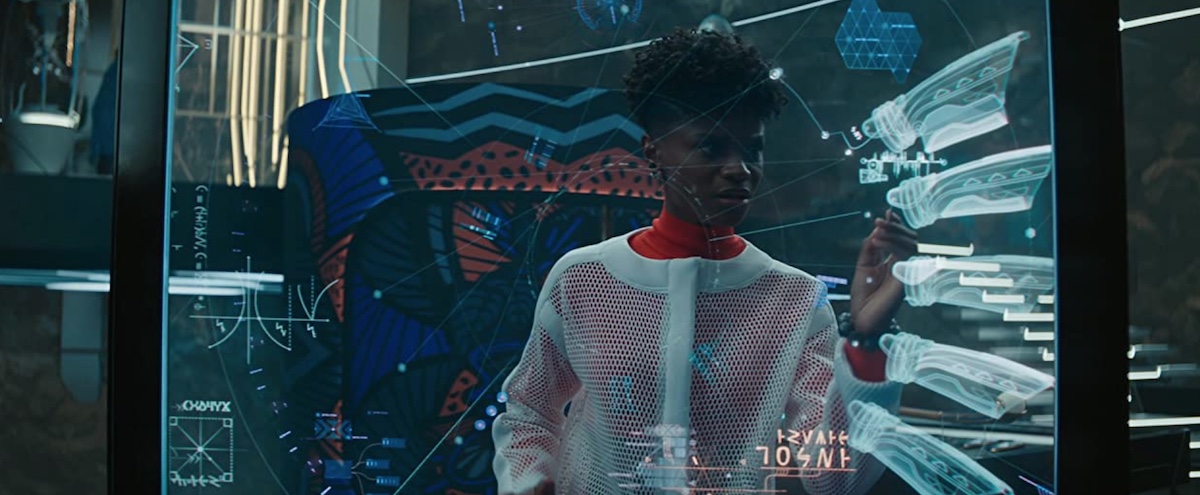
One can feel the original pitch for Black Panther 2 being pulled apart and stitched back together, as a variety of characters now share the burden of a storyline Boseman would likely have carried the majority of. Angela Bassett, Letitia Wright, and Danai Gurira do admirable jobs with the emotional heart of the story (especially when asked to tap into their genuine grief over the loss of Chadwick Boseman), but Wakanda Forever misses having a clearcut hero to go up against Namor. And once a new Black Panther takes up the mantle—two hours into the film—I wasn’t thrilled by the choice and it didn’t hit me emotionally.
There are undeniably successful aspects of this sequel, however. Chief amongst them is Coogler creating another culture almost as fascinating as Wakanda, with the metropolis of Talokan and its Mayan descendants who evolved blue skin and the ability to breathe water. There are avoidable similarities with Avatar: The Way of Water (2022), which this movie can’t hold a candle to in terms of its own VFX and use of underwater photography, but Marvel deserves credit for updating the silly ‘Namor the Submariner’ into an intriguing character. And they manage it while avoiding copying Aquaman (2018), which actually took a far more Marvel-y approach with its own colourful underwater kingdom, while Marvel approached Namor and Talokan with more seriousness. If one overlooks blue-skinned people hitching rides on killer whales and Namo flying around on wings protruding from his ankles, of course!
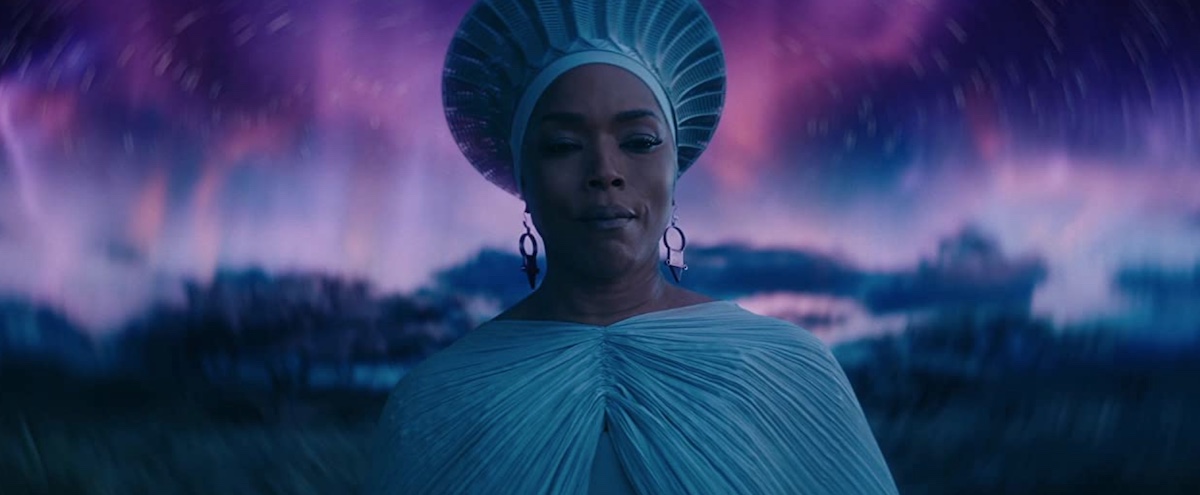
There’s long been a give-and-take feel to Marvel movies in terms of the artistry filmmakers bring to a project, and how it simultaneously needs to service the wider concerns of the Marvel Cinematic Universe (MCU). However, Wakanda Forever remains mostly unhindered by easter eggs, cameos, and post-credits scenes that sometimes overwhelm these films. The only slightly odd element is the awkward introduction of young MIT genius Riri Williams (Dominique Thorne), who invented the CIA’s vibranium McGuffin and is suddenly the heir to Tony Stark’s place in the super-ensemble after building her own version of an Iron Man suit. I don’t think it made a lot of sense to have her appear in Wakanda Forever when Riri supposedly has the Disney+ series Ironheart coming soon, but perhaps it was just another thing to distract audiences from the loss of T’Challa and help spread the narrative load?
More successful is the aforementioned Namor (a.k.a the feathered serpent god K’uk’ulkan), whose relationship with Shuri and anti-hero status are neatly handled and an unexpected way to bring this character into the MCU. It’s just a shame his people going to war with Wakanda (a very exciting prospect) is given such unconvincing motivation, rendering the storyline a little flat. Tenoch Huerta Mejía is a charismatic actor who makes for an effective foil, but Namor is nowhere close to being the equal of Black Panther’s excellent Killmonger, and it would’ve been more exciting to see him grapple with T’Challa as originally intended.
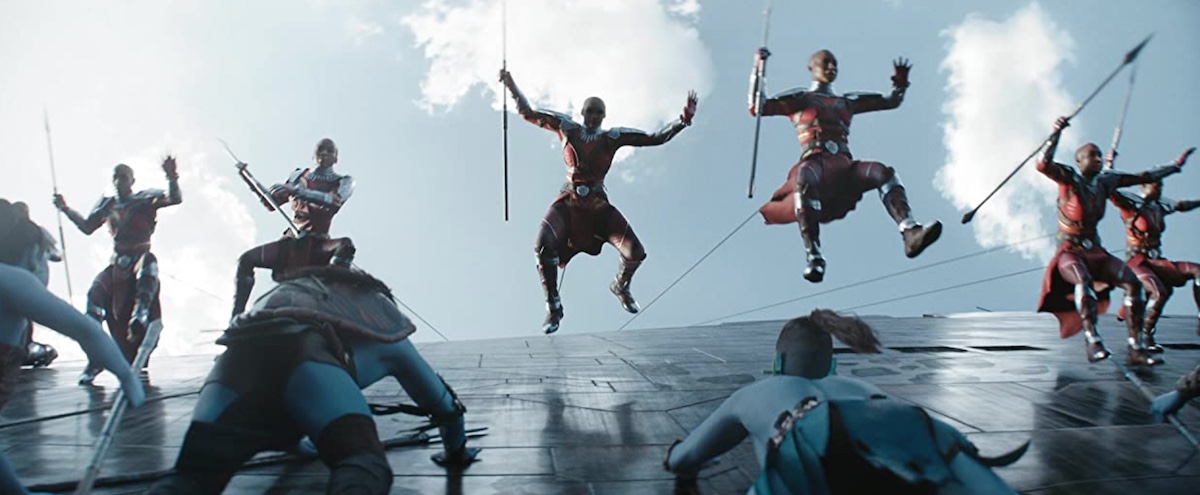
As a blockbuster crowdpleaser, there’s also a surprising lack of spectacle and action that stands out. A nighttime fight on a bridge between Okoye (Danai Gurira) and Namor’s henchmen works well thanks to cool fight choreography and sound design, but it’s a rather empty feeling blockbuster without an agile Black Panther around to inject life into things. And when the climax aboard a fighter aircraft rolls up, it seems oddly small-scale and there’s now uncharitable comparisons to the similar setting of Avatar 2‘s final act. This wouldn’t matter if the emotions behind everything were working to overcome ‘greenscreen-itus’, but the emergence of a new Black Panther felt abrupt and the big resolution to the conflict came across as twee. It perhaps didn’t help that the film is an epic three hours long and simply didn’t justify the amount of time being spent on this story.
Overall, Black Panther: Wakanda Forever was dealt a cruel blow during its development and the filmmakers have done their their best to overcome it. The moments that work as a tribute to Chadwick Boseman’s T’Challa are the highlights, the central actresses rise to the occasion to make their dearly departed star proud, but the MCU continues to feel like it’s having major problems and creative setbacks when it comes to getting audiences excited post-Avengers Endgame (2019). Maybe Phase 4 will retrospectively feel like the necessary groundwork for an exciting future, but with so many misfires and a mixed bag of TV shows over the past few years, there’s the unshakeable feeling Marvel needs to start focusing on quality over quantity.
USA | 2022 | 161 MINUTES | 2.39:1 | COLOUR | ENGLISH • XHOSA • MAYA • FRENCH

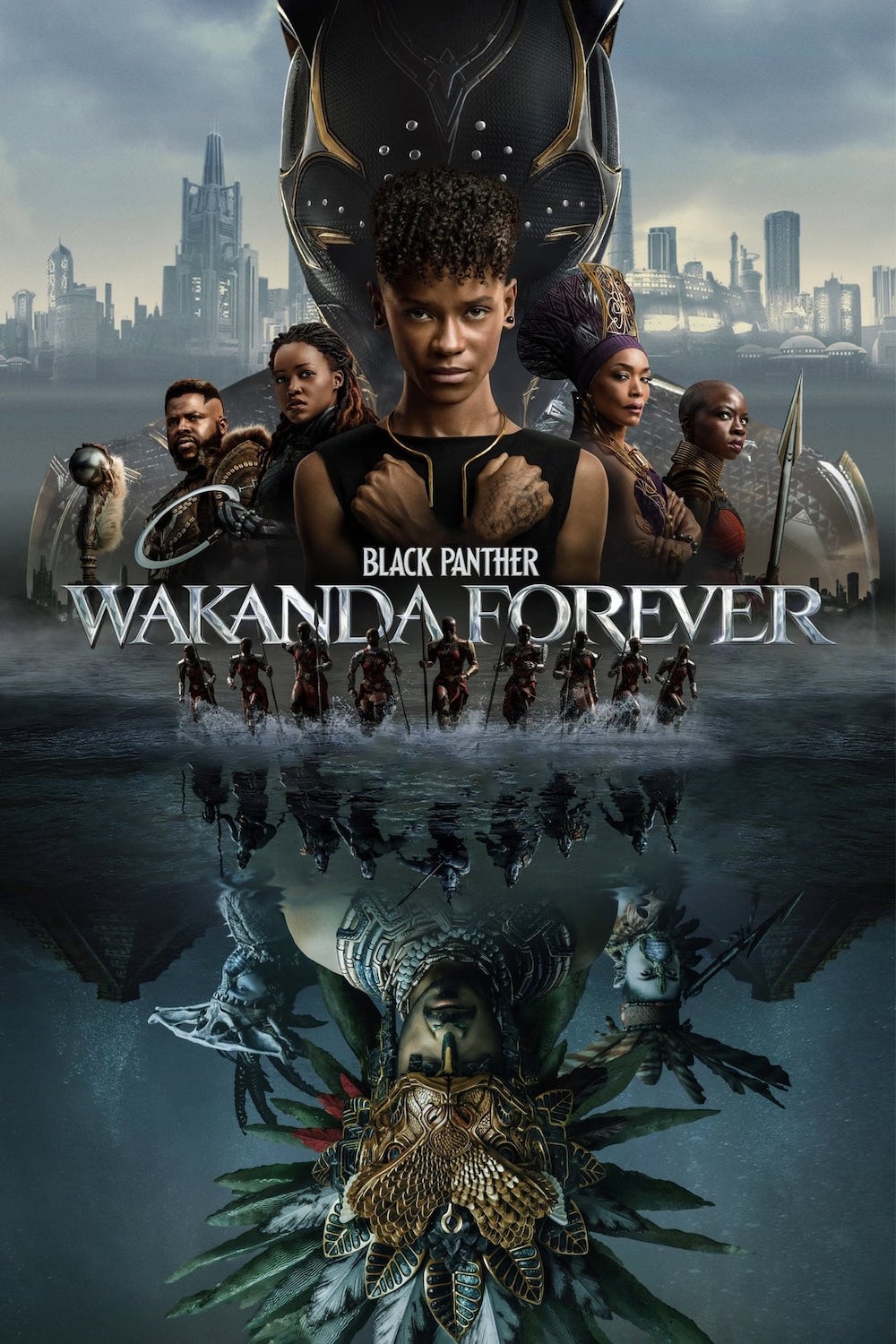
director: Ryan Coogler.
writers: Ryan Coogler & Joe Robert Cole (story by Ryan Coogler)..
starring: Letitia Wright, Lupita Nyong’o, Danai Gurira, Winston Duke, Florence Kasumba, Dominique Thorne, Michaela Cole, Mabel Cadena, Tenoch Huerta Mejia, Martin Freeman, Julia Louis Dreyfus & Angela Bassett.
